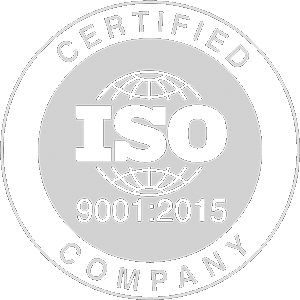The chemical industry requires materials that can withstand some of the toughest and most corrosive environments. PTFE for chemical processing is one of the few materials capable of resisting a broad spectrum of industrial chemicals, including strong acids, oxidizers, and reactive gases, without degrading or reacting.
Thanks to its outstanding chemical inertness, PTFE is widely used in components such as gaskets, pump housings, pipe linings, and reactor seals. It maintains its integrity even under high temperatures and pressures, helping to extend equipment life, reduce downtime, and improve safety in chemical processing facilities.
PTFE’s versatility allows it to perform reliably in both static and dynamic applications, providing long-lasting durability and making it a cost-effective choice for continuous operation environments.
- Chemical Inertness: Unaffected by most aggressive acids, bases, and solvents.
- Thermal Stability: Retains mechanical integrity across extreme temperature swings.
- Non-Stick Surface: Prevents buildup and contamination in chemical transport systems.
- UV & Weather Resistance: Maintains properties in harsh indoor and outdoor environments.
- Agitators and Mixers: PTFE coatings protect agitators and mixers against corrosive chemicals and high temperatures common in chemical reactors.
- Chemical Containers and Piping: PTFE is used to manufacture storage tanks, vessels, and piping that safely handle aggressive chemicals without degradation.
- Protective Coatings and Linings: PTFE coatings shield pumps, mixers, and equipment surfaces from chemical corrosion and reduce material buildup.
- Electrolysis Cells: PTFE acts as an insulating, chemically resistant barrier within electrolysis systems exposed to harsh chemicals and heat.
- Expansion Joints: PTFE expansion joints accommodate thermal movements in piping systems while resisting chemical attack.
- Filter Membranes: PTFE membranes provide chemical resistance necessary for filtration processes in harsh chemical environments.
- Seals and Gaskets: PTFE seals and gaskets ensure leak-proof, chemically resistant connections in pumps, valves, and flanges.
- Heat Exchangers: PTFE’s non-stick and corrosion-resistant nature reduces fouling and supports efficient heat transfer in heat exchangers.
- Laboratory Equipment: PTFE is favored for labware, such as beakers, flasks, and stirring bars, due to its chemical resistance and ease of cleaning.
- Pipe and Tank Linings: PTFE lining protects interior surfaces of pipes, tanks, and fittings from chemical wear during transport and storage of hazardous fluids.
- Pump Components: PTFE is used in diaphragms, impellers, and shaft seals to resist corrosion and provide smooth operation in pumps.
- Tubing: PTFE tubing enables safe transfer of reactive chemicals with excellent chemical resistance.
- Valve Seats and O-Rings: PTFE materials are used in valve components for reliable sealing against corrosive process fluids.
- Reduced Contamination Risk: Ideal for ultrapure chemical processing and handling.
- Equipment Longevity: Protects against corrosion and degradation over time.
- Reliable Sealing: Delivers long-term sealing in pumps, valves, and pipe systems.
- Process Efficiency: Maintains consistent flow and prevents blockages.
PTFE solutions provide chemical processing facilities with durability, cleanliness, and compatibility across a range of corrosive environments.
